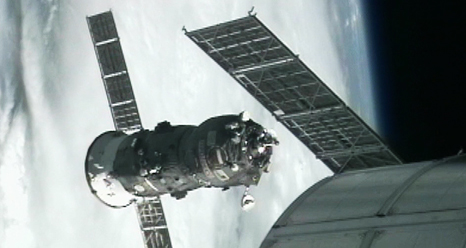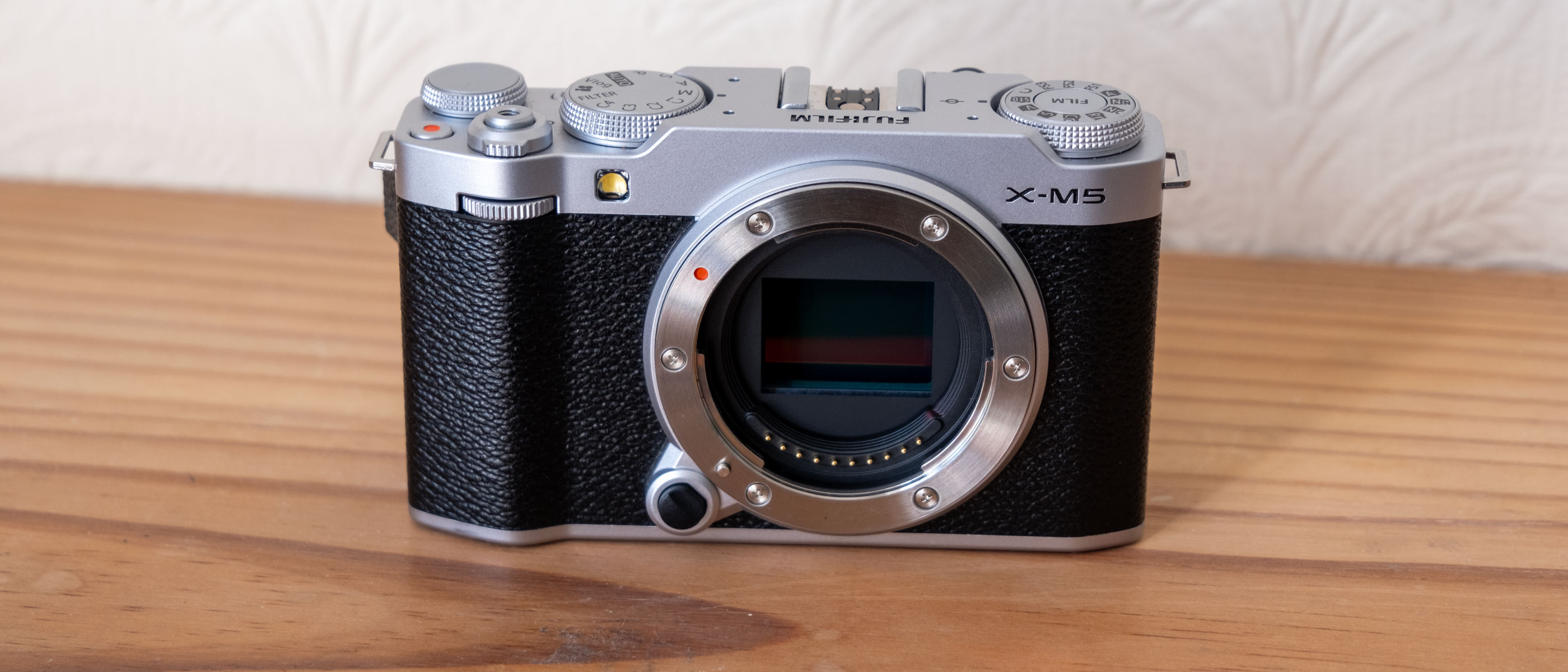Unmanned Russian Cargo Ship Departs Space Station

Breaking space news, the latest updates on rocket launches, skywatching events and more!
You are now subscribed
Your newsletter sign-up was successful
Want to add more newsletters?

Delivered daily
Daily Newsletter
Breaking space news, the latest updates on rocket launches, skywatching events and more!

Once a month
Watch This Space
Sign up to our monthly entertainment newsletter to keep up with all our coverage of the latest sci-fi and space movies, tv shows, games and books.

Once a week
Night Sky This Week
Discover this week's must-see night sky events, moon phases, and stunning astrophotos. Sign up for our skywatching newsletter and explore the universe with us!

Twice a month
Strange New Words
Space.com's Sci-Fi Reader's Club. Read a sci-fi short story every month and join a virtual community of fellow science fiction fans!
A robotic Russian cargo ship made its final departure from the International Space Station yesterday (July 30), after spending several months attached to the orbiting outpost.
The unmanned Russian Progress 47 cargo ship undocked from the space station on Monday at 5:19 p.m. EDT (2119 GMT), as both spacecraft flew over Kazakhstan, according to NASA officials. After backing a safe distance away from the complex, the cargo freighter will conduct several weeks of unrelated engineering tests, before it is deliberately sent to burn up in Earth's atmosphere over the Pacific Ocean.
Russia's disposable Progress vehicles are used to ferry clothing, food and other supplies to the International Space Station. The cargo ships remain parked at the outpost for several months, and after the astronauts aboard the station unpack the cargo, the spacecraft are typically filled with trash and other unwanted items.
At the end of their mission, the Progress vehicles are undocked from the station and purposefully sent to a fiery demise as they fly back down through Earth's atmosphere. [Infographic: How Russia's Progress Spaceships Work]
Before leaving the space station, the Progress 47 spacecraft conducted a test of an upgraded docking system that Russia intends to use on future unmanned Progress and manned Soyuz vehicles. The Progress 47 successfully completed the docking test on its second try, after a first attempt on July 23 was prematurely aborted due to a technical glitch.
To conduct the test, the Progress 47 initially undocked from the space station on July 22. The cargo ship was expected to automatically park itself at the Pirs docking compartment on the Russian segment of the space station the following day, but the attempt failed and the maneuver was aborted.
Russian engineers traced the glitch to lower-than-expected temperatures on the docking system. After adjustments were made, the spacecraft successfully re-docked to the space station on Saturday (July 28).
Breaking space news, the latest updates on rocket launches, skywatching events and more!
The successful test of the Kurs-NA docking system was a demonstration of an updated version of the Kurs system that has been integrated into Russian spacecraft for years. Several upgrades were made to the newer version, including better electronics that are expected to use less power and improve safety.
The Progress 47 arrived at the space station in April to deliver clothing, food and other supplies to the astronauts living aboard the space lab.
The next Russian cargo ship, Progress 48, is slated to launch to the space station on Wednesday (Aug. 1) from the Baikonur Cosmodrome in Kazakhstan.
Follow SPACE.com on Twitter @Spacedotcom. We're also on Facebook and Google+.

Space.com is the premier source of space exploration, innovation and astronomy news, chronicling (and celebrating) humanity's ongoing expansion across the final frontier. Originally founded in 1999, Space.com is, and always has been, the passion of writers and editors who are space fans and also trained journalists. Our current news team consists of Editor-in-Chief Tariq Malik; Editor Hanneke Weitering, Senior Space Writer Mike Wall; Senior Writer Meghan Bartels; Senior Writer Chelsea Gohd, Senior Writer Tereza Pultarova and Staff Writer Alexander Cox, focusing on e-commerce. Senior Producer Steve Spaleta oversees our space videos, with Diana Whitcroft as our Social Media Editor.
